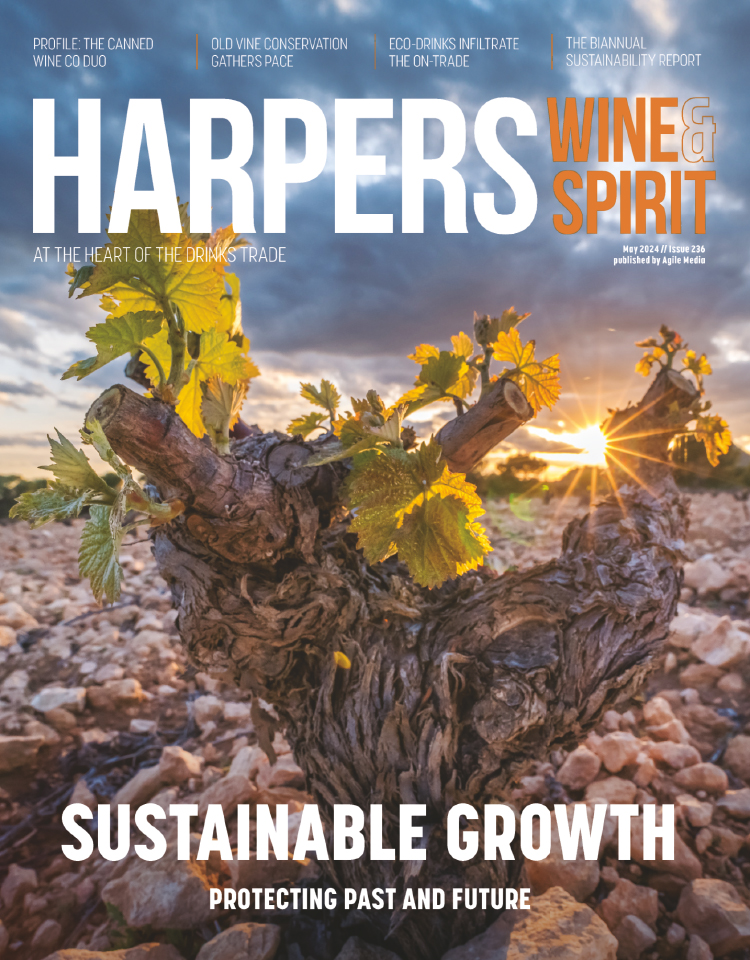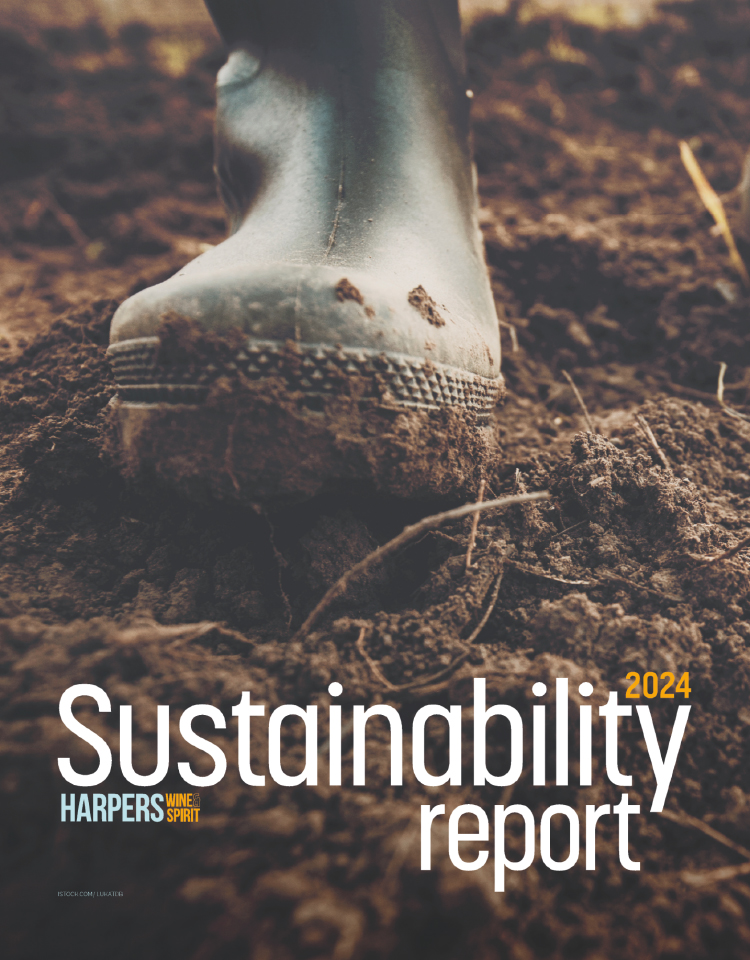RALLYING CALL
Drinks distributors, retailers, importers and marketers of the world unite.' It may not be the catchiest call to arms, but the recent International Federation of Wines and Spirits seminar in London sought to inspire the disparate elements of the trade to be more open to new developments - and with each other. Joanne Simon examines the key themes
What do nuclear power, sex and alcohol have in common? A great deal, according to Ari Vatanen, the former world rally driving champion who is now a member of the European Parliament's Wine Intergroup. When man is driving them, he is their master. But when it is the other way round, there are consequences' Speaking at the recent International Federation of Wines and Spirits (FIVS) Conference, held at Hilton London Docklands, Vatanen said that alcohol is by and large' a problem in his native Finland, simply because it is regarded not as an agricultural product, but as forbidden fruit. When you protect people, it's like having a windshield around a tree. The minute you take it away, the tree falls over because it hasn't needed to put down its own roots.' He said that his metaphor could be extended even to wine production. Le vin, c'est la France! No wine can beat French wine and I always defend it. But I cannot defend the way it is produced.' Vatanen's speech was a breath of fresh air at the conference, which was hosted by the Wine and Spirit Association and provided an opportunity for delegates to hear from organisations as diverse as Her Majesty's Customs & Excise, the US Bureau of Alcohol, Tobacco and Firearms, and the World Intellectual Property Organisation. From a winemaker's perspective, Vatanen, who makes wine from five hectares in the south of France, said he desperately needs more land, but is prevented by law from acquiring even one more acre. Imagine you wanted to open a new restaurant because you knew your quality would be better, only to be told, "Sorry, you can't, because there are already 150 restaurants and that is the limit"! For me, this is Stalinism and it is no wonder France is getting overtaken left, right and centre!' In Vatanen's opinion, France should get rid of its current appellation system and focus on brands that are based on grape variety and are representative of producer rather than region. I didn't choose my wife because she came from a certain region, I chose her because she tasted good!' The general tone of the day had been set much earlier by Sir George Bull, chairman of Sainsbury's and former chairman of Diageo, who asked: Is the Old World suffering more from missing some new promotional message, rather than an inability to satisfy the customer with a genuine and pleasing product?' In his keynote address, however, Sir George challenged the assumption that the Old World consists merely of producer-led, supplier-focused operations who devote their energies to bureaucratic control and regulation, often with no, or precious little, consumer focus'. From Mouton Cadet to Mouton Rothschild, from Georges Duboeuf to Clos Vougeot, from Calvet Reserve to Chteau Latour, from shippers such as Castelvin, Fontanafredda, Kendermann or Torres to importers such as Sainsbury's or Oddbins or The Wine Society, there is an emergence of good and exciting brands, both very Old and very New. Not only do these brands increasingly have a popular taste, but they are backed by a tried-and-tested base of guarantee on their type, taste and topography.' But Sir George stressed the importance of getting ever closer to consumers by listening to their needs, taking as an example the difference between salesmen of New and Old World wines when presenting to Sainsbury's wine buyers: The "Old" describe their wines using their selling price to us, but the "New" describe theirs by our selling price to the consumer. Which "spin" shows better consumer orientation?' he asked. Georges Dutruc-Rosset, who has been the director general of the Office Internationale de la Vigne et du Vin (OIV) for six years, said the organisation has a role to play in reconciling the Old and New Worlds in the global marketplace. Although the OIV was established in 1924 by eight European countries, he said the development of global markets and the tremendous boost' in trade had moulded it into an increasingly international exchange for scientific, technical, legal and economic data. Dutruc-Rosset said he has never understood why the concepts of appellation and brand have to be at loggerheads. I don't think there's any natural enmity between the traditional method of regional typicit and the newer brand approach. The new generation recognises that wine is the result of a combination of microclimates, land, vines and creative vintners. Meanwhile, Old World producers recognise they face difficulties because consumers prefer the New World's "downstream" approach -using modern technology to make wine that consumers want. I believe that traditional and New World producers are coming together and will meet somewhere in the middle. It is certain that competition will get ever more lively,' he added. This could result in a decrease in prices, lower quality to meet these lower prices, or even a decrease in production, if vineyards have to be grubbed up. Alternatively, with open dialogue, we can work together to maintain the international patterns of moderate consumption. We also have to work together to ensure that the international health sector takes account of the special health properties of wine, instead of trivialising it along with any other beverage.'
Health and free trade Indeed, health was a theme that cropped up throughout the day. Much is said about the dangers of alcohol and, indeed, abuse of our products is unwise, unhealthy and potentially dangerous,' said Sir George. But the civilised world has learned over 4,000 years to handle the sensible use of alcohol. Legislation to "prevent the possibility of" is hugely restrictive and never works. Peer group pressure and sensible guidelines are much more effective.' The issue of alcohol, public health and trade liberalisation was raised by Noel Schacter, an independent consultant sponsored by the World Health Organization (WHO). The fact remains that alcohol is a major contributor to disease and disability around the world,' he said. But he insisted that perceiving WHO as being totally opposed to (alcohol) trade agreements is not correct'. WHO's concern, he said, is that these agreements are increasingly focused on market liberalisation and not on trade per se. Governments do need to be considerate to commercial interests, but decisions should not be driven by commercial interests,' he concluded. US congressmen George Radanovic (Republican) and Mike Thompson (Democrat) said that the Congressional Wine Caucus, which they chair, is aimed precisely at educating congress about the production and consumption of wine, so that it can be better informed when talking to the EU or casting votes. We don't just want free trade, we want fair trade,' said Thompson. Notwithstanding the huge amount we export, the European centres of production sell us over six times more. We can't reduce tariffs on imports until we reach a level playing field.' Dr Barry Sutton from the International Wine Clubs' Association agreed that alcohol was good in moderation and should not be legislated out of existence'. Speaking about the importance of regulating distance selling, thanks mainly to the growth in Internet wine sales, the former madaboutwine.com chairman said that having also been mad about the fact that it could never make money' had made him painfully aware that it wasn't an easy sector of the trade. It's a very hidden market. It is not classified by Nielsen, for example, so there are no figures for how big it is in statistical terms. But as far as we can see, the value of the global distance-selling market is e2.1 to 2.5 billion, and it is growing faster than any other supply channel, with the potential to reach 50 million cases within five years.' Sutton stressed that this development would apply only to the premium sector, because it is impossible to sell at shop price points and make any money at all'. He also said there was a need to lift restrictions to free trade in some countries. It's simple: the freer the market is, the more wine we will sell. Period.' Alistair McArthur, director of corporate services at Allied Domecq, spoke about the need to move towards global business standards, saying that Allied had been forced to take the Global Commerce Initiative (GCI) a bit seriously' when it realised that seven out of its top ten customers were members. Created in 1999, GCI is a network of consumer goods companies working to improve consumer value in the overall supply chain, and to develop and share best business processes around the world. Its key objective is to endorse and encourage the implementation of global standards that simplify global commerce (such as Universal Data Exchange, or the Global Trade Identification Number, which should become a requirement for doing business by January 2005, replacing the currently incompatible European and US barcoding systems). It's all about less supply chain complexity - reduced costs, lower stock levels and better service,' said McArthur. In summing up, WSA director Quentin Rappoport commented: There has been a huge number of issues discussed during the conference, which has stimulated lively debate and highlighted a number of important issues, including the overriding importance of considering the consumer at all points in the supply chain, as well as in the legislative arena.' And Sir George Bull said: As a trade, we have much need of co-ordination and mutual help, but there is more that joins than divides us. Whether producer, distributor, retailer or consumer, we share a common purpose.' After the conference, at its 52nd General Assembly, FIVS announced a new structure, whereby specific committees, co-chaired by Old World' and New World' representatives, will liaise with the WHO, the OIV, the World Trade Organisation, the World Intellectual Property Organisation, the World Customs Organisation, and the Organisation for Economic Cooperation and Development.






